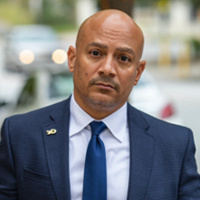 Concord Felony Lawyers, New Hampshire
Concord Felony Lawyers, New Hampshire
Not enough matches for Concord Felony lawyer.
Below are all Concord Criminal lawyers.
Sponsored Lawyers
1-10 of 17 matches
15 Constitution Drive
Bedford, NH 03110
Bankruptcy & Debt, Lawsuit & Dispute, Criminal, Accident & Injury, Business
Chuck Douglas is a practicing lawyer in the state of Georgia. He received his J.D. from Georgia State University. He currently works for his privately owned firm of Wakhisi-Douglas, LLC.
(more)
Nursing Home, Family Law, Divorce, White Collar Crime, Personal Injury
Workers' Compensation, DUI-DWI, Divorce, Medical Malpractice
Construction, Medical Products & Devices, Federal, Estate Planning, Criminal





